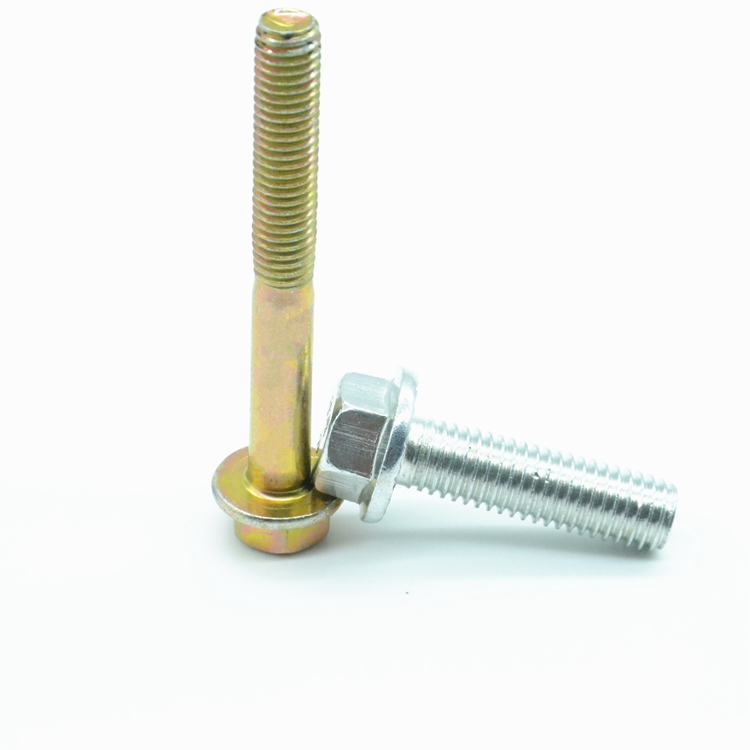aluminum bolts and nuts factories
Dec . 06, 2024 11:19 Back to list
aluminum bolts and nuts factories
Aluminum Bolts and Nuts Factories An Industry Overview
Aluminum bolts and nuts are essential components in various industries, including automotive, aerospace, construction, and manufacturing. As lightweight and corrosion-resistant alternatives to their steel counterparts, aluminum fasteners have gained popularity in recent years. This article explores the importance of aluminum bolts and nuts factories, the manufacturing processes involved, market trends, and the environmental impact of aluminum production.
The Importance of Aluminum Fasteners
Aluminum fasteners, including bolts and nuts, offer several advantages over traditional steel fasteners. Their lightweight nature contributes to fuel efficiency in vehicles and aircraft, making them particularly attractive to the automotive and aerospace sectors. Additionally, aluminum’s natural resistance to corrosion extends the lifespan of fasteners and reduces maintenance costs. These characteristics have led to a growing demand for aluminum fasteners across various industries.
Manufacturing Processes in Aluminum Fastener Production
The production of aluminum bolts and nuts involves several key steps. The process typically begins with the selection of high-quality aluminum alloys, such as 6061 or 7075, which exhibit excellent strength-to-weight ratios and corrosion resistance. Once the appropriate alloy is chosen, the manufacturing process can be broken down into several stages
1. Extrusion Aluminum is heated and forced through a die to create long profiles, which can be cut to desired lengths for bolts and nuts. This process allows for the efficient production of complex shapes.
2. Machining After extrusion, the profiles undergo machining to achieve precise dimensions. This involves drilling, tapping, and cutting to manufacture bolts and nuts to specific tolerances.
3. Heat Treatment Aluminum fasteners often undergo heat treatment to enhance their strength and hardness. Processes such as solution heat treatment and aging can significantly improve the mechanical properties of the aluminum.
4. Surface Treatment To further enhance corrosion resistance, aluminum fasteners are frequently coated or anodized. Anodizing creates a durable surface layer that protects against environmental factors, while coatings can provide additional benefits, such as increased aesthetic appeal.
aluminum bolts and nuts factories

5. Quality Control The finished products are subjected to rigorous quality control measures, including dimensional inspections, mechanical testing, and corrosion tests. This ensures that the fasteners meet industry standards and customer specifications.
Market Trends
The global market for aluminum fasteners continues to expand, driven by several factors. The increasing demand for lightweight materials in the automotive and aerospace industries is a significant contributor. Additionally, the rise of electric vehicles (EVs) has prompted manufacturers to seek ways to reduce weight and enhance energy efficiency, further fueling the demand for aluminum fasteners.
Emerging markets in Asia-Pacific and Latin America are also contributing to the growth of the aluminum bolts and nuts industry. Rapid industrialization and increasing infrastructure development in these regions create a substantial opportunity for manufacturers of aluminum fasteners.
Furthermore, innovations in manufacturing processes, such as additive manufacturing (3D printing), are paving the way for the production of complex aluminum fastener designs that were previously unachievable. This advancement is expected to drive competition and efficiency in the industry.
Environmental Impact
The extraction and processing of aluminum are energy-intensive processes, leading to concerns about the environmental impact of aluminum production. However, many aluminum bolts and nuts factories are adopting sustainable practices to minimize their carbon footprint. This includes sourcing aluminum from recycled material, which significantly reduces energy consumption and greenhouse gas emissions.
Recycling aluminum requires only about 5% of the energy needed to produce new aluminum from ore. As such, the focus on sustainability is not only beneficial for the environment but also offers cost savings for manufacturers.
Conclusion
Aluminum bolts and nuts factories play a crucial role in supplying lightweight, corrosion-resistant fasteners that are essential for various industries. The manufacturing processes involved are sophisticated and require strict quality control to meet industry standards. As market demand continues to grow, especially with the rise of electric vehicles and advancements in manufacturing technology, aluminum fasteners are set to become even more integral to modern engineering. Moreover, the industry's commitment to sustainability through recycling and eco-friendly practices will contribute to a greener future, making aluminum an increasingly desirable choice for fasteners across the globe.
Latest news
-
Durable Bolts for Lawn Mower Handle - Top Supplier & Manufacturer
NewsAug.22,2025
-
High-Quality Bolts for Lawn Mower Handle Supplier & Manufacturer
NewsAug.21,2025
-
Reliable Axle Nuts Supplier | High-Quality Automotive Parts
NewsAug.19,2025
-
Premium Wire Bolts Suppliers | Durable & Reliable Fasteners
NewsAug.18,2025
-
Leading Metric Wood Screw Companies & Manufacturers
NewsAug.17,2025
-
Top Wire Bolts Suppliers - Quality & Durable Fasteners
NewsAug.15,2025
